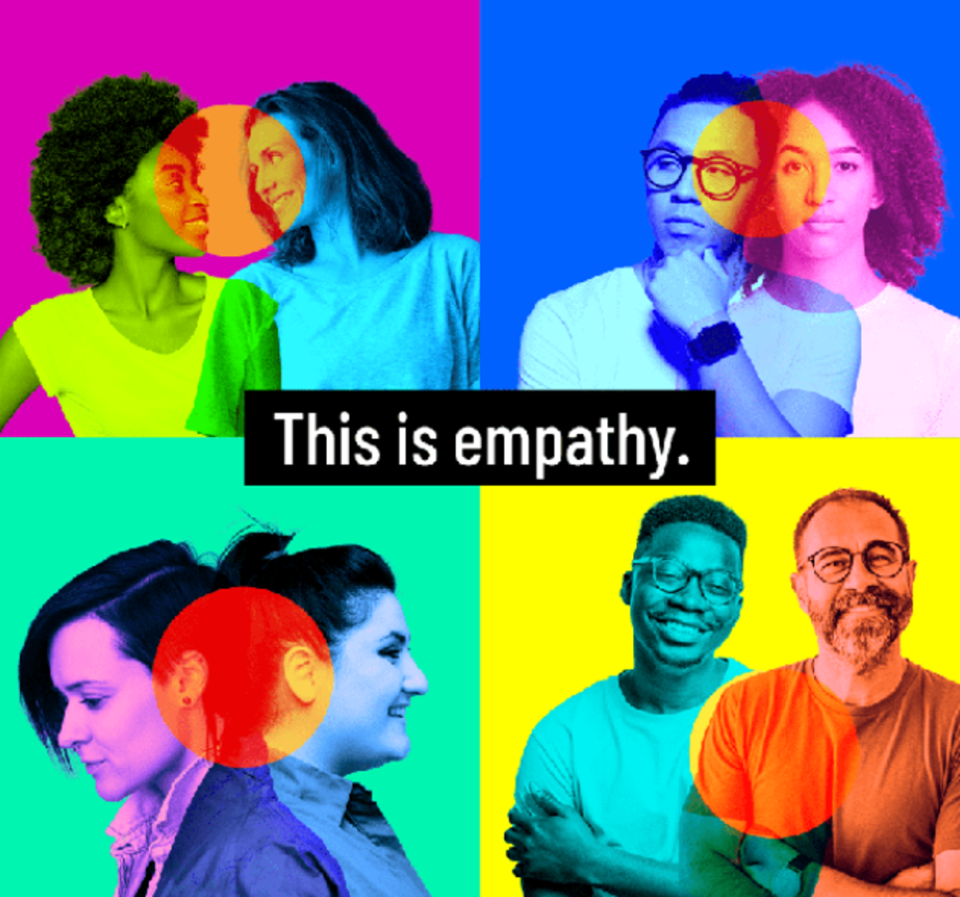It is no secret that the pandemic has, for many, spurred mental health challenges and exacerbated existing struggles, but that is just one example of a global issue hitting very close to home.
The world is shifting. People have recently fled and continue to flee the violence of their homeland to settle in Canada and newcomers can bring new challenges with them.
The Canadian Mental Health Association of York Region and South Simcoe (CMHA-YRSS) is continuing to shift to meet changing demands in the community.
May 2 to 8 marks the 71st annual CMHA Mental Health Week and with a world that is changing rapidly around us, and affecting each person differently, the theme for this year’s Week is “Empathy.”
For the CMHA, empathy is recognizing when people are struggling but, instead of feeling like you have to “fix their pain,” it is a matter of “tuning in to see through their eyes.”
“We want everybody in York Region and South Simcoe to know that the CMHA is part of your circle of care and when we help others we help ourselves and when we help ourselves we help others,” says Rebecca Shields, president of the CMHA-YRSS.
Mental health, she says, has been “at the top of everybody’s mind” over the last two years and everyone is trying to find their “new normal” and their place within it.
“Rates of anxiety and depression are up within youth so we have our mind on that,” says Ms. Shields. “We know that our newcomers and immigrants are struggling. We’re still seeing the impacts of the pandemic on mental health and even the global impacts of what it is like to have a war going on in Ukraine for many of our citizens and how these global events [can have an impact] – and then the local need for services has gone up.”
Over the past two years, the CMHA-YRSS has seen increased needs in all areas of care, including youth programs. While COVID-19 spelled the temporary end of their in-school programs, their mental health bus – MOBYSS – has kept the show on the road and, through that method of outreach, they estimate they have helped more than 3,700 youth in the last year alone.
“We have our eyes set on youth because they have such increased rates,” she says of anxiety, depression and other challenges facing younger residents. “We have programs for our youth with our youth wellness program, which is more of a counselling service, and that alone helped another 900 people through workshops. We’re really focusing on our youth population. The pandemic has leveraged our opportunities virtually, but really going multi-channel, but we’re still really shifting back to a combination of [virtual] and in-person because you’re not always going to meet the needs if you do it virtually. We’re going to continue to provide that in-person care but also allowing those who would benefit from virtual care to have access to it.”
Another key focus for the CMHA-YRSS are newcomer wellbeing programs, with an additional emphasis on refugees.
“The diversity of our region continues to increase in a wonderful way, so we’re working on settlement challenges for people and integrating them in, especially with the lack of affordability,” says Ms. Shields. “That lack of affordability hits all sectors.”
The CMHA-YRSS says they’re particularly proud of programs that have been developed to meet the needs of newcomers, including their Newcomer Wellbeing Program, which has been funded through Immigration, Refugee and Citizenship Canada.
“We’re right here to work with them and provide the mental health support that they need, whether they are coming as a refugee or coming with those challenges of trauma that they have left behind and trying to settle in Canada, and we also have people who have come here as economic immigrants and to join families and are dealing with the adjustment to life in Canada,” says Ms. Shields, citing the long Canadian winter as just one such adjustment.
“CMHA is a very active partner in how we’re building up our own language resources and supports to understand the resources they need. Thinking about when people are coming and they’re bringing their families in from the Ukraine, a lot of it is immediate needs, where are they going to sleep? Where are they going to get furniture? Where are they going to get food? Certainly working around that and accessing communication devices here so that they can get resources and connections that is really the next step. From there, how do we help them manage both coming here and dealing with what they left and also family members who may have been left behind? A lot of what we’re thinking about is with that population today, how do we support them today, and how do we ensure that they have access to and can access supports they’re going to need in a month or two?
“Last year [we] served over 292 new clients and what’s really nice is 85 per cent from receiving services had an improvement in their depression-related symptoms and 89 per cent experienced an improvement in their anxiety-related symptoms. It’s a really great program that we’re really ensuring that those who are struggling have access.”
For more on the CMHA’s Canadian Mental Health Week initiative, and how you can become involved in spreading Empathy, visit www.mentalhealthweek.ca. If you’re in York Region or South Simcoe and are seeking support, visit cmha-yr.on.ca or call 1-866-345-0183.
Brock Weir is a federally funded Local Journalism Initiative reporter at The Auroran



